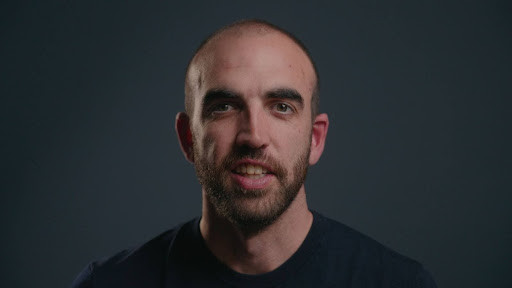When Emissions Become Assets: AIRCURE TECH is Seeking Strategic Partnership to Turn CO₂ from Burden into Base Material

What if emissions weren't merely the symptom of industrial progress but the raw material of a new industrial revolution? That question frames AIRCURE TECH's founding thesis. Instead of forcing activity to stop, the deeptech holding reframes excess atmospheric carbon as additives that allow established manufacturing lines to produce next-generation materials that actively fix CO₂ while meeting or improving product specifications.
AIRCURE TECH is known for owning the intellectual property for a suite of atomic-level chemical processes and spinning out vertical subsidiaries to develop market-specific products. Founded by Joan Puig and Jose M. Cela, the company serves as a bridge between laboratory discovery and industrial deployment.
The firm's core technology, Aircure, operates by regulating the four primary elements of Earth's mass, carbon, hydrogen, oxygen, and nitrogen, in situ across surfaces and the nearby atmosphere. Based on atomic chemistry, Aircure was designed to magnify Nature's balancing acts by orders of magnitude, enabling materials and treatments that fix carbon and recompose ecosystems on commercially meaningful timelines.
Concrete applications highlight the technology's breadth. In textiles, fabrics doped with trace amounts of the technology's formulations have been trialed as active, air-treating garments. Meanwhile, for transportation, the chemistry can be embedded in cabin and external materials to mitigate a vehicle's instantaneous footprint by converting emitted CO₂ in real-time.

In construction, concrete, claddings, and paints treated with tailored formulations can become functioning CO₂ sinks that also enhance durability, permeability, and thermal properties. This can impart performance benefits that align environmental function with cost-effective lifecycle improvements.
Agrifood is a central near-term market for AIRCURE TECH. Its technology can be formulated as soil amendments and irrigation treatments that modify local atmospheric CO₂ and the bioavailability of nutrients. In a controlled irrigation experiment, the company compared plots treated with low-concentration aqueous formulations against tap water.
Twelve hours after treatment, treated soils showed atmospheric CO₂ variations ranging from approximately 700 ppm below to more than 1,000 ppm above the untreated control. Soil assays indicated as much as a doubling in assimilable macronutrients (potassium, calcium, and magnesium) and improved availability of micronutrients (zinc, manganese, and copper).
"Those shifts point to two complementary commercial opportunities," says Puig. "First, we can boost yields and crop quality during productive cycles. Second, we can provide measurable, monetizable soil value during fallow or non-productive periods through temporary microclimate control."
At the environmental scale, AIRCURE TECH has tested ocean and coastal interventions in seawater samples where trace formulations stabilized the local CO₂ balance and improved water chemistry. In a Mediterranean seawater trial, a sample doped with a 0.03% formulation held atmospheric CO₂ concentrations approximately 50 ppm lower than an untreated control five hours after application.
The treated sample also showed a modest but measurable 0.1°C reduction in temperature, recovered pH toward baseline, maintained dissolved oxygen, and converted nitrogen into more photosynthetically available forms. These laboratory results suggest a pathway to tools for coastal resilience, blue carbon enhancement, and the mitigation of localized warming or acidification events. These are functions that national agencies and marine managers could find operationally valuable.
The experimental portfolio is diverse because AIRCURE TECH's objective isn't to sell a single commodity but to license a chemistry platform that can be tuned to multiple product families. That modularity is the company's unique commercial argument. Rather than forcing industrial change by regulation alone, the technology offers a non-destructive transition for sectors where stopping activity is either impossible or socially damaging.
AIRCURE TECH's roadmap maps intellectual consolidation to deployment. The current year focuses on securing IP, initial strategic partnerships, and closing an investment tranche that will fund prototype development. The near term calls for field demonstrations in 2026, pilot-scale product families and subsidiary-level IP by 2027, followed by product scalability and commercialization in 2028.
To realize that timetable, the firm is inviting technological and industrial partners to develop and scale materials; investors prepared to underwrite facilities, teams, and pilots; and governments or agencies seeking next-generation, deployable climate and biodiversity tools. In 2025, AIRCURE TECH has signalled a targeted valuation milestone of roughly $50 million tied to the agriculture and forest verticals.
This is an invitation couched in pragmatism. AIRCURE TECH's business model anticipates developing in-house pilot production for selected products, including fertilizers, water treatments, construction additives, and then partnering with established manufacturers to scale those products to market through licensing, contract manufacturing, or joint ventures.
Each vertical will require dedicated human capital and facilities, such as a core science and product team, tailored commercial capabilities, and pilot plants. However, the underlying IP remains centralized in the U.S. to preserve governance and to facilitate cross-vertical spillovers.
AIRCURE TECH presents itself as an industrial-grade chemistry platform built to change the unit economics of climate action. By turning the atmosphere into a workable reagent and packaging that capability into vertical products, the company aims to make climate remediation a parallel growth engine. The next phase of validation depends on field demonstrations and industrial partnerships, opportunities where strategic capital can both accelerate impact and capture early commercial upside.
"Fixing the planet will not succeed if it demands poverty or halts growth from the many who need prosperity," Puig states. "We built Aircure on the idea that planetary repair must also create value. If emissions can be turned into feedstock, industries have a reason to invest, scale, and protect the systems that sustain life."
© Copyright IBTimes 2025. All rights reserved.




















